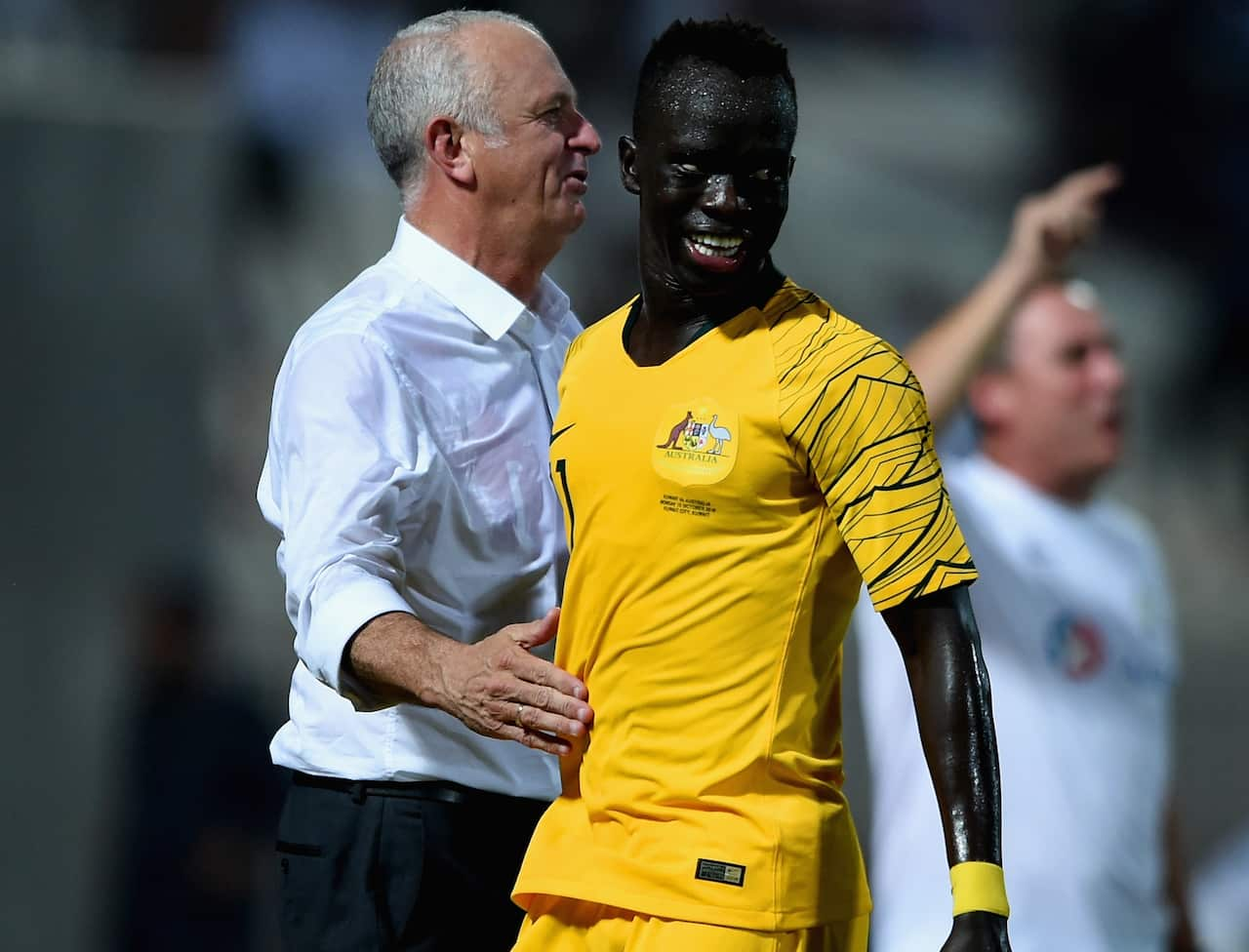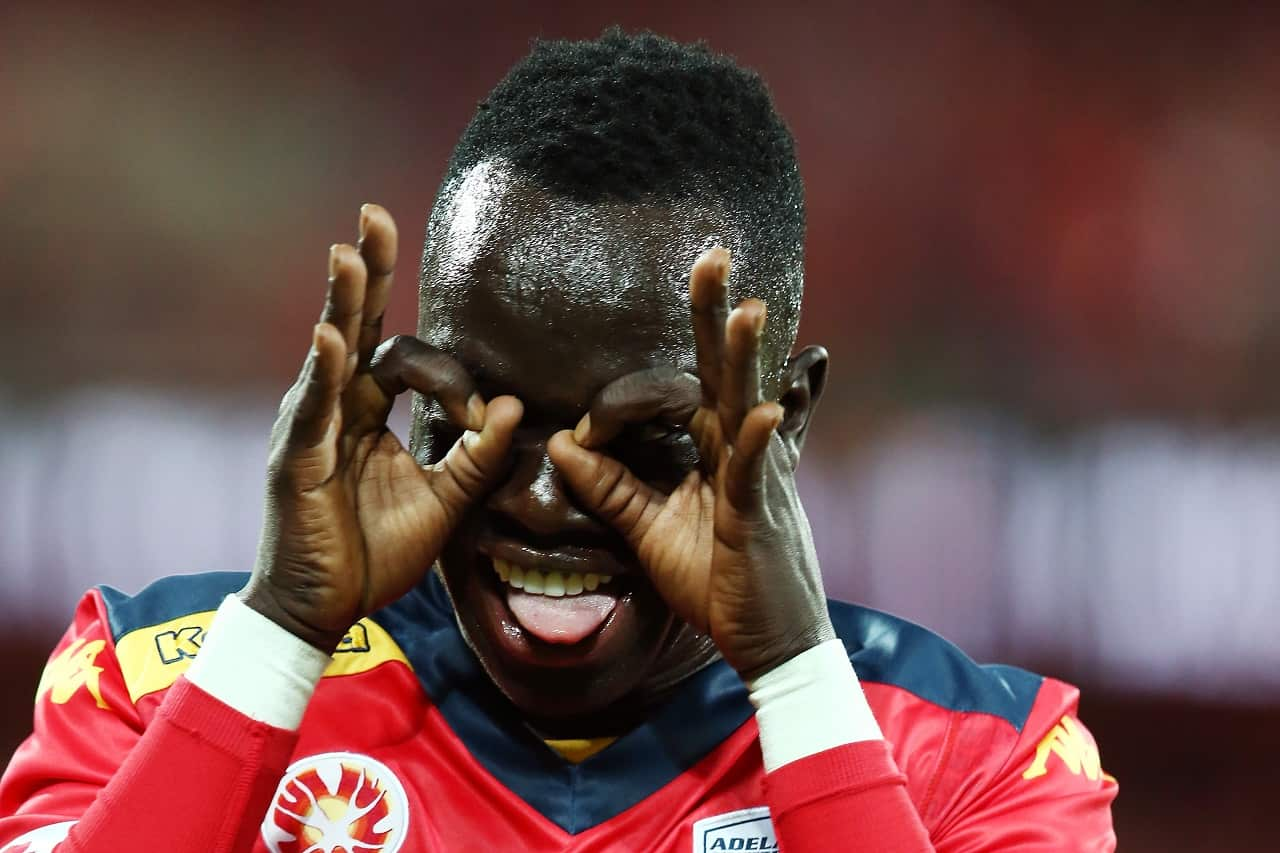Freshly-capped Socceroo Awer Mabil says it's "normal" to be racially abused in Australia.
But Mabil, who was born in a refugee camp in Kenya, says he doesn't "judge Australia as a racist place".
"There are certain people who are racist but it's a country that belongs to everybody," Mabil told the BBC's World Football program.
Mabil scored a goal on his Socceroos debut in a friendly against Kuwait last month and appears a certain squad selection for upcoming internationals against Korea and Lebanon.
The footballer and his family came to Australia in 2006 after growing up in a mud hut in a refugee camp after his mother fled civil war in Sudan.

He said he was frequently subjected to racism in Adelaide, where his family settled.
"I have faced it a lot," Mabil said.
"Once, when I was 16, I came home and one of my neighbours attacked me.
"The first thing I did was shut the front door and hide my siblings. I was talking to these guys while the door was shut, I said 'go away.' They kept saying 'go back to your own country.'
"Apart from that, you experience day-to-day things like when you're walking along the road there are people in cars beeping you and saying things.
"That's normal."

But Mabil, who began his top-tier football career at Adelaide United, said he was a proud Australian.
"I represent Australia because it has given me and my family the opportunity in life to have a second chance," he said.
"It's part of me because I have lived half of my life there. I call it home so I'm proud to represent Australia."
Mabil was grateful for his upbringing in the refugee camp in Kakuma where he lived in a mud hut with his mother, sister and brother.
"We got food from the UN once a month ... we had one meal a day which was dinner, there was no such thing as breakfast or lunch," he said.
Mabil, who has launched his own foundation, Barefoot to Boots, regularly returned to Kakuma.
"I take boots, football equipment and hospital equipment and donate them to the refugees," he said.
"It was really tough [living there] but it's something I'm really grateful for and will be grateful for for the rest of my life.
"It has built some mentality into my head to appreciate the good times and to not give up on my dreams."

